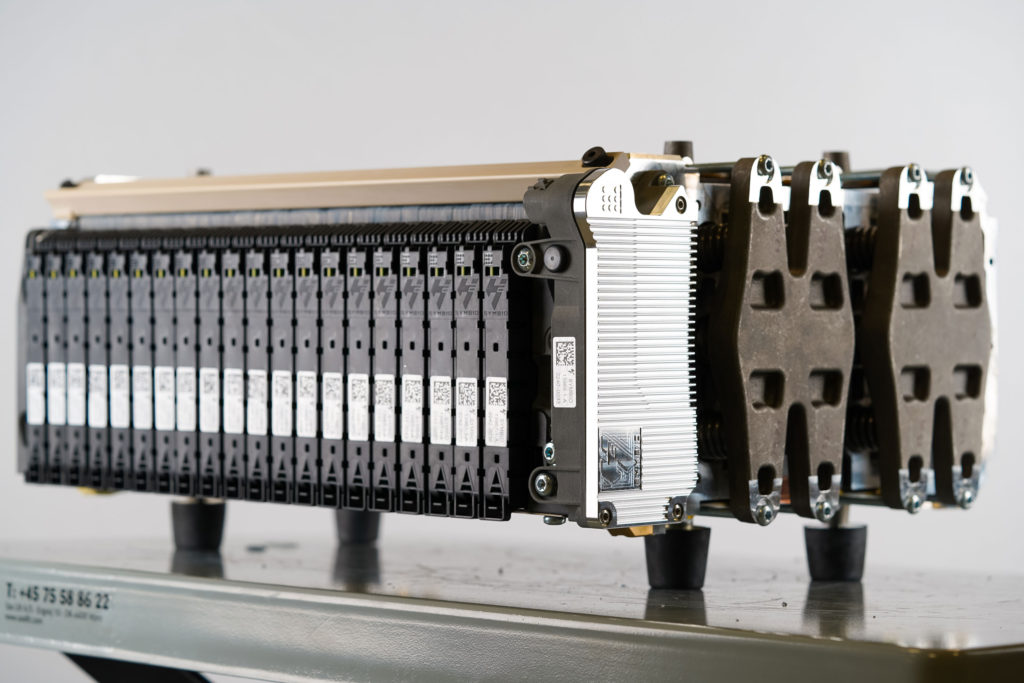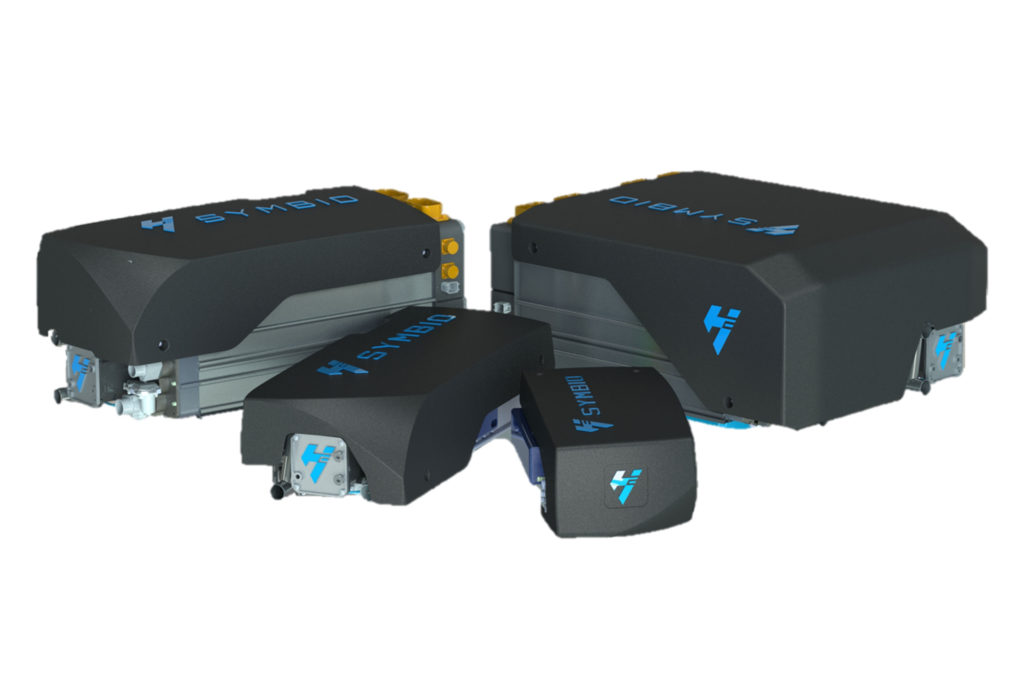Everybody talks about how battery-electric vehicles will clean up personal transportation. And it’s true, BEVs are a cornerstone of the ongoing green revolution, but they’re not the only path forward. Hydrogen fuel cells will also play a critical role in the coming years, especially in commercial applications, since this technology scales up much better than batteries do. Pushing fuel cell technology forward, Symbio, a French firm that’s associated with Michelin and supplier company Faurecia, unveiled its groundbreaking Full Stack Monitoring (FSM) system at CES 2023.
SEE ALSO: New tech from Magna can change a vehicle’s shape before your very eyes
What this innovative technology does is keep tabs on every cell in a hydrogen fuel cell stack. By independently measuring the voltage produced by every individual cell – and sharing that information through a vehicle’s CAN bus – the system can optimize performance, project future maintenance and quickly identify if anything is going wrong. Should a cell start failing, it can be flagged, then the entire stack can be disassembled, so offending components can be replaced. All this improves not only serviceability but the longevity of a hydrogen fuel cell, increasing the lifespan by around 20%, a huge jump.

Symbio’s fuel cells are designed to last for about 20,000 hours of operation, a fairly nebulous term, but that equates to roughly 1 million miles, which is ideal for large, over-the-road trucks that typically get mega mileage out of their hulking diesel engines. With such longevity – and since they scale up far better than heavy battery packs – fuel cells are an ideal replacement for traditional combustion engines in Class 8 and other commercial trucks. One of the biggest issues holding this technology back is the availability of hydrogen. Public EV chargers are scarce enough these days, but hydrogen fueling stations are nigh on impossible to find outside of certain locations like Southern California.
Bringing this advanced drivetrain technology to a roadway near you, late last month multinational automotive giant Stellantis announced it plans to “acquire a substantial stake in Symbio,” though a dollar amount for this investment was not mentioned. Company CEO Carlos Tavares touched on this development in his CES keynote address, saying, “This will speed our ability to bring [to market] large vans and later heavy-duty trucks powered by hydrogen.” The Stellantis head honcho basically confirmed they’re working on hydrogen-powered large pickup trucks that will have zero harmful tailpipe emissions. Undoubtedly, Symbio will play major role in these developments.
An interesting footnote: the plates inside fuel cells are coated in platinum. According to a Symbio representative, it takes just about as much of this precious metal to build a hydrogen fuel cell for an automotive application as it does to make a light-duty catalytic converter. As internal combustion-powered vehicles retire and their catalysts get recycled, the precious metals contained in them can be refined and used to build fuel cells, meaning fewer virgin materials have to be mined, and that’s great news for the environment.

In addition to their new FSM technology, Symbio also showed off their StackPack fuel cell design at CES. Compact and efficient, this modular hydrogen fuel cell system will be offered in various outputs. The StackPack 75 was proudly on display, a unit that takes up very little space and weighs just about 100 kilograms (220 pounds). As the name suggests, this setup delivers 75 kilowatts of output, about 100 horsepower. StackPack fuel cells will also be offered in 150- and 300-kW capacities, formfactors that are expected to enter production in 2024. Mass production of the StackPack 75 is scheduled to commence later this year.
CHECK IT OUT: Ram Revolution BEV Concept teases us the electric Ram future
Hydrogen fuel cells are another way to make transportation – both personal and commercial – far cleaner. Right now, it seems like the technology is lagging behind what’s happening in the battery-electric space, but companies like Symbio are certain to keep pushing forward with new fuel cell innovations.
